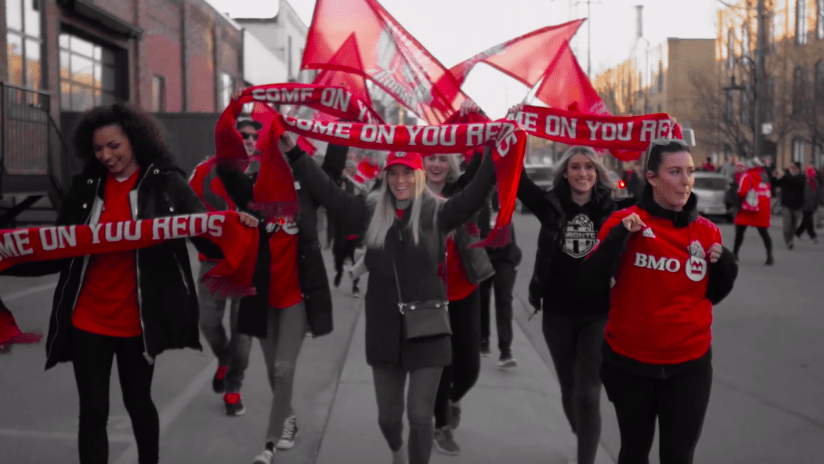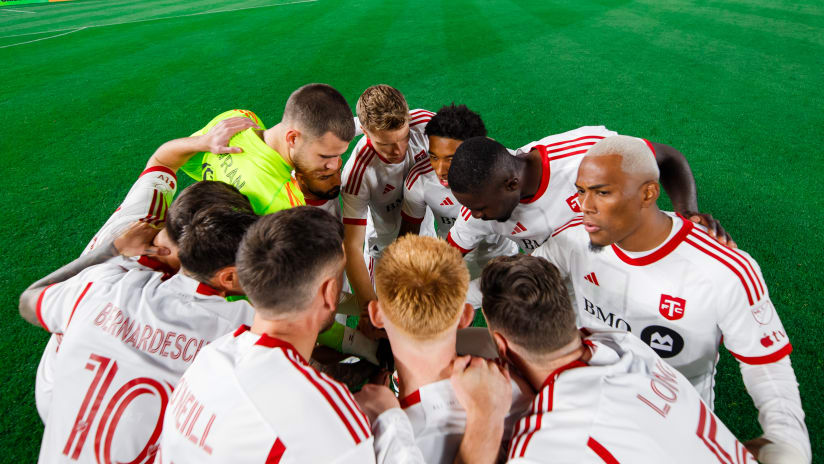To celebrate International Women's Day, we sat down with some of the women of Toronto FC to spotlight their involvement with the club and the imperative work they do to help set the standard in MLS.
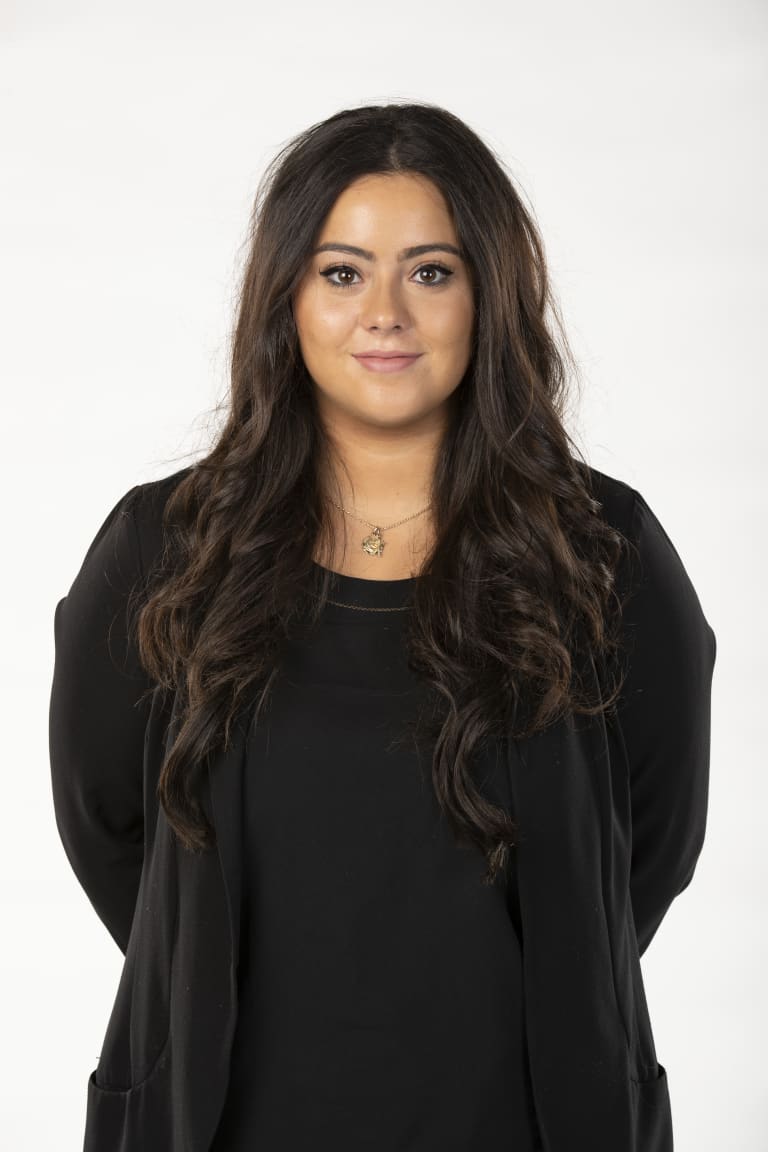
Melissa Frith - Executive Assistant to the President (Markham, ON)
How did you get into soccer? When did you join TFC? How has the experience been?
I started playing soccer when I was five years old. When I was in University, I was lucky enough to get hired part-time as part of the game crew. From there I moved into a full-time game operations role, assisting with a lot of the stadium set up, ceremonies and events. From there I moved into the marketing department.
I always wanted to get on the team side and last year I was lucky enough that an opportunity became available and I made the switch over. It's great here: everyone working together towards one goal. It makes the job a lot easier, a lot more fun. Similar to any job, it can get stressful at times, but everyone working together and the support that you have is really something special.
What moment stands out to you from your time with the club?
Making the switch from the business side to the club side, going through the playoff run last year and the way that it was structured, it was one of the most fast paced environments I’ve been in, but seeing it all come together and the support we all showed to one another was truly something special.
And just when you get to the game, all the excited fans that come to BMO Field to support the team. I’ve always appreciated the roles I’ve been in that allowed me to interact with our fans and hear all the stories they have to share on our club and the impact it’s had in their lives. Being able to provide the fans with a unique experience or behind the scenes look has always been my favourite part of game days.
Having been on both the business and club sides, you’ve had a unique view. What insight has that given you?
It's really helped me be able to connect with the different departments. Being able to help connect is something that I enjoy doing, keeping those relationships and understanding how all the parts come together to build the end-product.
I have more appreciation for the different roles and the different tasks within our company. I’ve been lucky enough to have a lot of the behind the scenes roles, which isn’t always glamourous, but it definitely allows you to have a greater appreciation for all that goes on.
How much work goes into something like the home opener?
Various departments spend months during the off-season working towards ensuring we’re kicking off the season at BMO Field on a positive note. It involves everything from getting the stadium up and running, getting it updated with the branding, the painting and everything needed, being an outdoor venue. When it comes to game time, fans will be showing up an hour before, excited for the start of the new season, but what a lot are unaware of are the staff that will be showing up hours before – some at 8 am – getting everything ready and set to go.
How have you seen the landscape for women in soccer change over the years?
When I was playing soccer, the memories I have of learning the game from other females was in watching our older club teams play or being ball girls for a Lady Lynx game. Our team had season tickets with Toronto FC and the girls would rotate attending games, so we grew up primarily watching more males playing, but now there's a lot more accessibility to watching women's soccer and conversation around it. Young female athletes have the ability to look up to those playing in the NWSL and National Teams. You're able to pinpoint more role models. When you see more females playing at those levels, you know it’s possible to make it there yourself.
From a career standpoint, you're seeing a lot more females in the industry, especially in leadership roles. It's great to see. All the teams from MLSE, we have such a great support system here, and connecting, not only within our club, but amongst all teams, in terms of best practices, growth, supporting one another. It's definitely moving in the right direction.
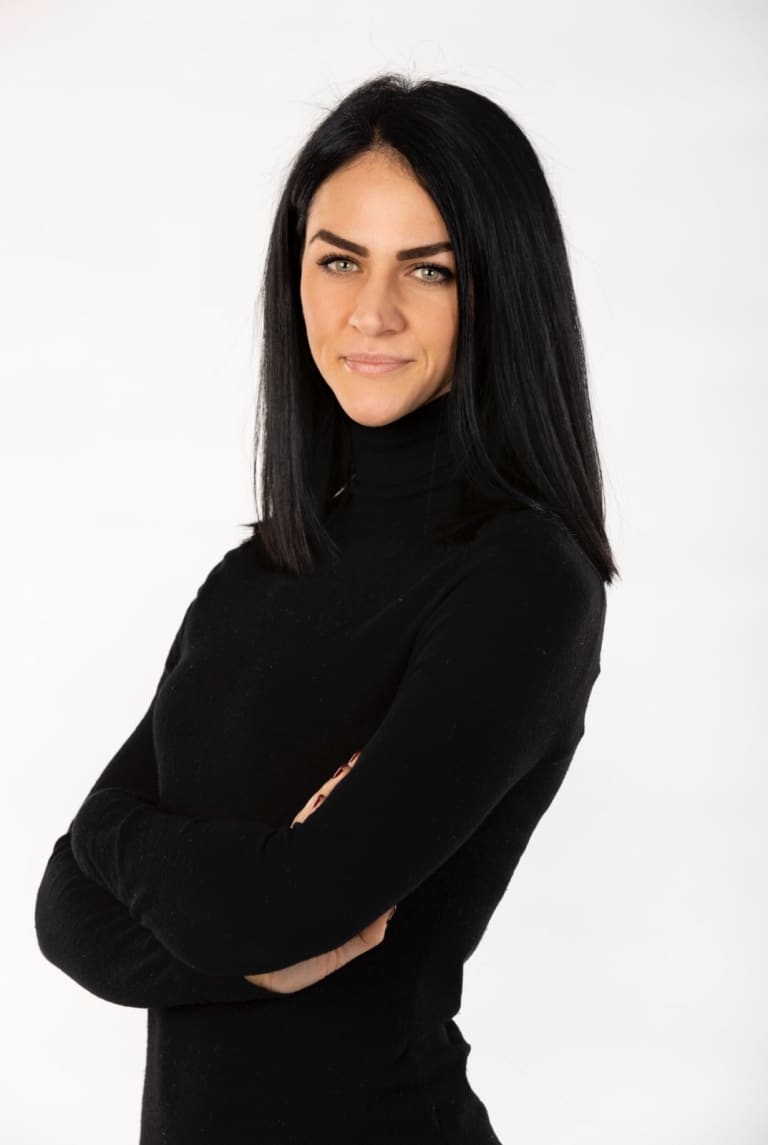
Tania Pedron - Senior Manager, Administration & Operations (Vaughan, ON)
How did you first get involved in soccer? At Toronto FC?
I started playing soccer when I was nine years old, but started watching it a long time before then with my father. Growing up, I played competitively for Vaughan and continued playing for Wilfrid Laurier University. Through different experiences in soccer, I came to enjoy the operations side, and knew I wanted to pursue it as a profession.
After University, I went to play professionally in England for a little bit. Unfortunately, an injury ended my soccer career and I came back to Canada to complete a Sports Business post-grad program at Durham College. From there, I was lucky enough to get an internship here. After two months, Tim [Bezbatchenko] hired me as his Executive Assistant. From there I was able to transition to the role that I'm currently in. I've been very fortunate.
Professionally in England?
Doncaster Rover Belles.
What are some of your responsibilities and duties at TFC?
The main purpose of my role is to ensure everything is running smoothly and all departments are aligned with our club’s vision. Some aspects of my job include: overseeing academy programming, building operations & scheduling (BMO Training Ground and BMO Field), capital, staffing, relocation and on-boarding of first team players and their families, family programming for first team players and staff. A little bit of everything.
What’s it like working for TFC?
I absolutely love it. We're very family-oriented, it's all about teamwork. In the role that I'm in I touch base with many different departments, I'm able to learn so much that way. What makes us special is the fact that we have such hard working, passionate people that are here for the collective good, for the team. We're all here to make sure the team is successful. When you have people that are that dedicated to an organization, it's pretty special.
What do you do to make sure the players’ families are settled and taken care of?
Myself and Jaime McMillan (Senior Director, Administration & Operations) provide support to the families to help them get acquainted with the club and city. Most of the players don’t have family in market, so we want them to know that the club is here to support them in any way possible. Whether it’s moving services, realtors, doctors, vehicles, banking and anything in between, we provide them with the resources and support they need.
We do our best to make sure that they feel comfortable with us, so the players can focus on the field, knowing everything is taken care of off the field.
Some days are tougher than others?
Working in sport, you’re addicted to the highs, which helps you get through the lows.
There will be tough days, that’s life. It’s having the positive mindset--keeping the team unified and focused--that gets you through these times.
How have you seen the soccer landscape evolve in recent years for women?
Women have many more opportunities in soccer, both on and off the field; it’s come a long way.
When I played, myself and the girls I played with had part-time jobs we had to juggle. Those same girls are now playing for big clubs like Chelsea, AC Milan, and that’s their only job. They’re able to focus solely on their sport. Finally.
You go on the AC Milan Instagram, they cover both the men’s and women’s team. Something that was once only a dream for young girls, has now become a reality. It's going to continue to go in the right direction.
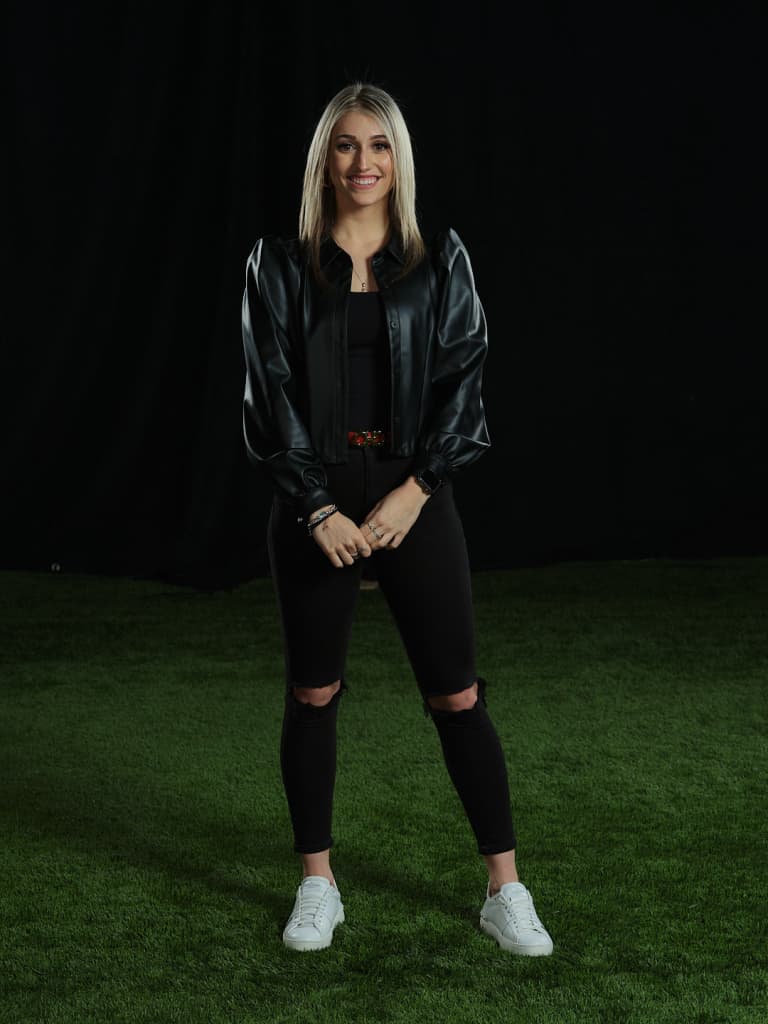
Maria Papadakis - Digital & In-Stadium Host (Aurora, ON)
How did you first get involved in soccer? And at TFC?
I was immersed in soccer, literally, when I was born. My dad played it and watched it every weekend. My family was heavily into the sport, so I grew up playing it and watching it. When TFC [came], I watched as a kid and [it] was something I looked forward to, going into sports media at Ryerson.
I applied for an internship in 2017 and I ended up getting hired with the media relations team. And from there, was history. Served for a year as an intern, during the MLS Cup [winning 2017] season, and then was brought on as the host and in stadium host since.
Describe your role? Pretty cool gig, no?
From game day to day-to-day coverage of the team, that's where I'm at, all the time.
100%. I love it here, it's a lot of fun. Every day is a different day. When you come here, everyone has such a good energy and such a positive attitude, from the team to the staff, so it's a lot of fun. Plus, you get to go and talk about soccer every day.
Where does the energy you put into hosting come from?
What fuels me the most is seeing the excitement and gratitude from the fans around the team. Every time I'm at a game, just seeing how excited they are to be there and be immersed in it, that fuels me every game to keep creating more and better content for them to watch.
What’s the like being down at field level before kickoff?
It's amazing. Getting to look at everyone, it's incredible. You feel like an ant at some points because there's so many people there. But just seeing the excitement is – I don't even know how to put words to it – it puts you in an awe. I honestly have no words to really describe it, it's incredible. Especially having been there [in 2019] during the playoffs again [against D.C. United], and we won. One home game, the fans went wild. Having the energy and the excitement is incredible.
How have you seen the role of women in soccer and sport develop in recent years?
More and more opportunities. You look at networks, you look at teams, you just see so many different people within our industry, women doing great things. For example, the Raptors have a female coach, here there's so many females from the front office all the way through to the staff. Having women more involved has helped involve more women in sport.
Continuing forward, it's just allowing and recognizing those opportunities and seeing how women are also sports fans, not a woman's sports fan, but just sports fans at the end of it. That's something that has to go, but that's being pushed out, the stereotypes and boundaries.
Every day women are able to get out there and really show what they're about, especially at MLSE. It’s highly representative. There are so many women in so many different departments. MLSE does a really good job at allowing for those opportunities to grow.
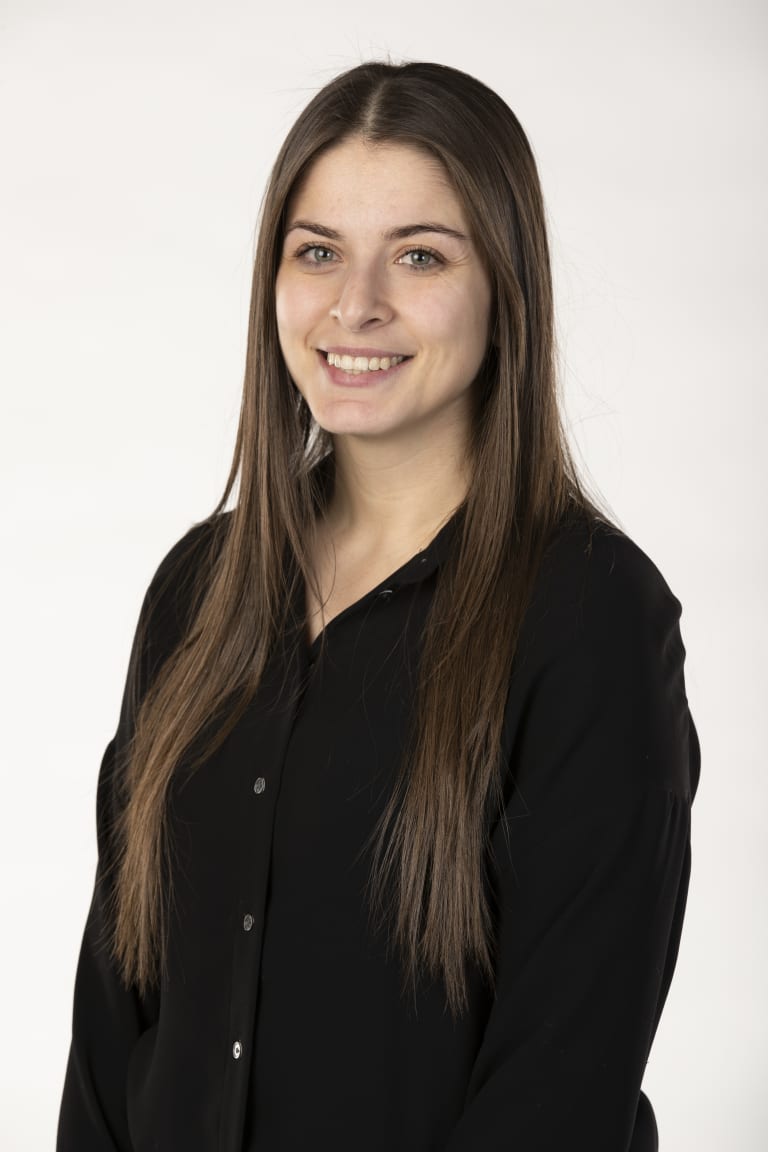
Diana Esteireiro - Coordinator, Academy Operations (Etobicoke, ON)
How did you first get involved with soccer? How did you join TFC?
I've been involved soccer my whole life. I started playing when I was four – coming from an Italian and Portuguese background I was thrown into it. I played in university, University of Toronto – for actually our academy director, [Anthony Capotosto] – and I got an internship after doing a post-grad at George Brown. Did my internship under Mairin with Academy operations. Shout out to Mairin Scannell, she was awesome. She was a great mentor. And when she moved along I was in the right place at the right time and got the opportunity to, kind of, run the Academy.
Run the academy?
I am the coordinator of Academy operations, so everything from scheduling training, organizing travel to different competitions throughout the year. We also have Academy programming throughout the year with events and meetings, our academy director with parents. A big chunk of that is also communicating with parents, letting them know what's going on, managing school schedules, and just having that open dialogue with families to let them know what we're up to.
It was Academy signing night the other day, no?
Wednesday night, yes that was fun. The academy athletes got the opportunity to sign their commitment letters. Basically, a document that has our code of conduct for both the athlete and their parents. So when they're here, what is expected of them.
We also require their parents to sign it as well and a member of the club, usually myself, will sign it. It symbolizes the club's commitment to the athlete and their development, as well as the athlete and their parents commitment to the club.
What’s that like, overseeing a player as they move from the Academy to the first team?
I haven't been around for that long, [but] seeing players like Jahkeele [Marshall-Rutty] get his opportunity is pretty cool. Seeing him with the 14s, 15s, the 17s, and now, make that leap. Even seeing him last year make his debut with TFC II was pretty cool.
A highlight would be last year our U15s won the national championship of their age group with the US Soccer Development Academy. That was pretty cool too, it being our first season in the league.
How have you seen the landscape evolve for women’s soccer in recent years?
When I was growing up, all my teammates, [ask them], ‘Who is your favourite soccer player?’ They’d point to David Beckham, Cristiano Ronaldo, Leo Messi. All men's names, you don't hear female names. But now, with the introduction of the NWSL young girls are having an opportunity to see Christine Sinclair, to have seen Abby Wambach and those players growing up, get an opportunity to idolize them and watch them more. More players playing at home, so that young girls can aspire to be like them one day and have somewhere to play.
Growing up, everybody [said] I want to be a professional soccer player, but then when you think about it as you get older, what league would I play in? I'd have to go to Europe if I wanted to play professional soccer.
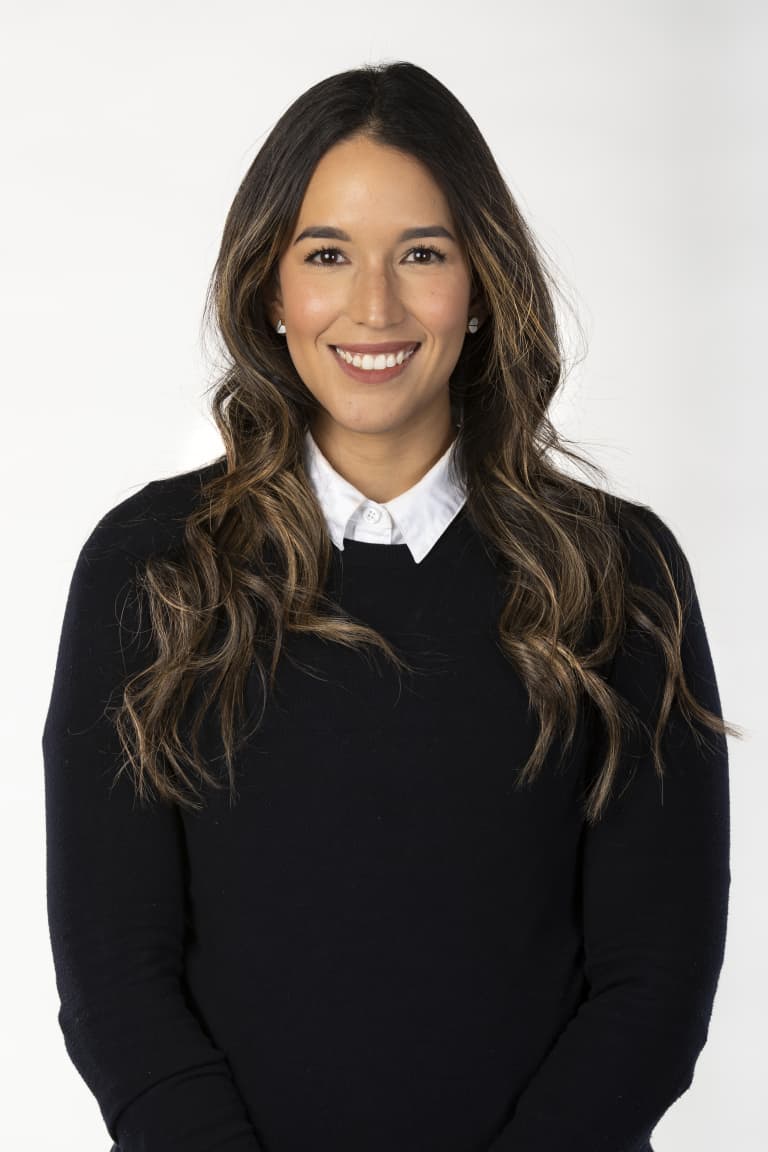
Alejandra Rueda - Coordinator, Communications (Cali, Colombia)
I take it this isn’t your first interview?
No, it's not the first one I have ever done. Growing up with my dad, a couple of times we were contacted to talk about how he is at home, as a father, and all that stuff. Every time he was getting closer to a big game, they wanted to see how the family was feeling. Since I was involved with soccer and in the industry, media usually came to me to talk about my dad.
* Her father, Reinaldo Rueda, is currently the coach of the Chilean National Team, having managed clubs in Colombia and Brazil, as well as the Colombian, Honduran, and Ecuadorean national teams.
You’ve been around the sport your whole life then?
Since I was born. I was going to post recently a photo of me playing with a soccer ball, I was three and a half. My dad used to take me to training and I would play around while he was coaching. I didn’t continue playing, it wasn’t one of the skills that I practised during my childhood. When I was around 12 or 13, I wanted to be a soccer player, but I noticed I was really bad because I didn’t start at a younger age. But then when I was 14, I wanted to be in journalism, be a sports reporter or something like that.
How did you wind up in Canada?
I finished high school and my dad was signed to go to Honduras. I didn’t know how long he was going to stay, so I wanted to find a place where I could do my whole university. I moved to Canada, started with English courses for four months and then did my journalism program with Ryerson University, always trying to cover sports and soccer stories.
My first contact with TFC was in 2011. Through a player who used to play for my dad in Honduras (former Red Amado Guevara), I met the communications director of TFC at the time, Cesar Velasco. I started doing a show with his son, we would talk to fans around the stadium. That was my first thing with Toronto.
And then I just focused on school. I reached out back in 2014 or 2015, saying, ‘I just finished school, is there any opportunity.’ They didn't have any spots available, so I just stayed around. In 2016 and 2017 I worked as part of the game crew and I did an interview with the marketing department. While working with Concacaf, I started being around more during the club’s run in the Champions League in 2018. And then when the opportunity came, they called me.
What is a communications coordinator?
Basically I work with the first team, helping Mike [Masaro] and Jeff [Bradley] and then I’m more in charge of the second team. A lot of numbers and stats, game notes before the match, help with the media and the interviews. And with the Spanish asset, I do a lot of translation.
Yeah, I love it. It's just different. I always thought I was going to be like as a sports reporter, but then when I finished school and got my first tournament with FIFA I wanted to work more on other side.
Ever get tired of dealing with the media and their endless requests?
Even if it's long or tough, I love every single day, every moment. Counting down the days for a match is the best thing. Once you get to the match days, you forget about everything that you went through during the week and then, if it’s a win, that’s even better.
You had a hand in the video announcing Alejandro Pozuelo’s MLS Best XI?
It was very nice, stepping outside of my role a little bit. I got to organize things with his little kid and then with Jerome [Cheng]. When I saw it, it was really nice because it was a different way to tell him that he was part of the Best XI. Knowing that he is very close to his kids and they mean everything to him, it was very nice to announce it that way. Seeing he was happy, his wife was super happy, this is the best result.
How have you seen the landscape for women in soccer change in recent years?
Around the world it has changed a lot. Women around soccer before there used to be like one or two. When I started being around Toronto FC in 2011, I only saw Andi Petrillo all the time. Cool, at least there's one. I looked up to her because she was the only person I had as a reference and now you see more people working in the industry and more girls trying to study because now there are women that will the open the doors for them, so there might be more opportunities in the future.
How was your experience working at the Women’s World Cup last summer?
It was pretty awesome. Most of the staff from FIFA and from the local organizing committee were women. They were trying have more women working there, to empower more, to inspire more; making sure that we are closing the gap. It was pretty cool to see more women working in the security department, marketing, match coordination and all those kinds of things that sometimes when you go to a men's tournament, it’s all men. That's where everything is going.
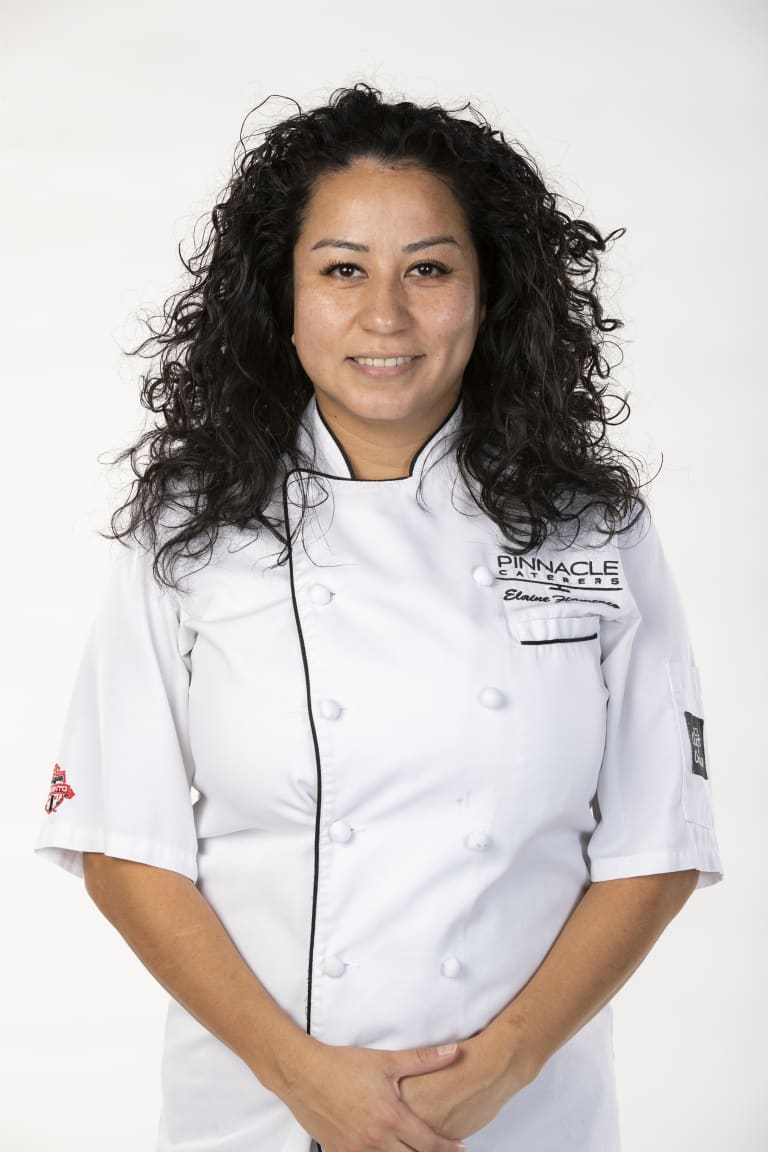
Elaine Flamenco - Head Chef (Toronto, ON)
Let’s begin with those birthday cupcakes I’ve heard so much about.
I'm actually doing that today; we’re doing it by month now. Before we were doing it to the day, whose birthday was it today, and we realized that some months we were doing like 15-20 cupcakes and there's only so much that the staff and everyone could eat. So now we do it once a month or sometimes twice, depending on how many people are in that month.
We'll do a cupcake and we'll get everyone together and sing. It eliminated the awkwardness of that one person, now people don't feel as uncomfortable. That’s a touch that we have here, which is really cool. We don't really give desserts whatsoever, so when they hear it's cupcake day it's huge, they look forward to it.
What’s it like feeding an entire soccer club?
It can be high intensity, being in the kitchen, but having this kind of place where you get to see the players every day and you get to interact with them because it is an open kitchen, was very much out of my norm. I was always in a kitchen that felt like a dungeon. To have windows in front of me and this beautiful green pitch, you sense that you're a part of something good.
You're seeing them train; you're seeing the grunt work that leads up to the game. That's exciting, to feel something big, even if it is just the cooking aspect.
Did you ever think you would end up working in professional sports?
When I came out of college, culinary area management, I had the opportunity to be in a co-op. It was Air Canada Centre, now it's the Scotiabank Arena and I had the opportunity to work there. When you’re filling out an application, they give you your number one option, number two, number three. On a whim I put fine dining, catering, and hotel management, all in the one. Scotiabank Arena had everything that I ever wanted or needed.
And I always loved sports. Basketball, the Raptors playing there drew me in. When I was a kid and I played with my brothers, I was always the goalie or always in outfield. I didn’t get the big roles, but being a little sister if you wanted to have any kind of fun, you had play sports. There were no dolls, no girly things to do. I never knew that I could tie both of them together, the cooking and the sports. And when it did, I was just blown away.
How long have you been with the club?
About eight years ago, I started as a sous chef here. Then the head chef left, so I had the opportunity to be head chef. That was really new to me, I had been doing the role, all the hands on stuff, but when it came to the ordering and taking the role of the whole kitchen, it was a bit challenging, I was a bit nervous, but I didn't realize that it would come so casually to me. Titles have always kind of scared me, all that responsibility, but after that it was something that I would feel very comfortable in doing.
In that role, you have to set an example. Being in an industry, coming from a company that was predominantly men in the kitchen, the ratio was always probably like 10:1. I had two older brothers, so I was very used to that kind of setting.
I wanted to be a boss that would show that I work just as hard, leading by example, that I'd be the most tired one in the kitchen – that's how it should be. Once people start to see that you're working really hard they kind of follow suit. It’s setting a tempo in the kitchen, setting a standard, a high standard. There I started to see that I was an organized person, very much into details. That role made me open up to a person that I didn't even know I was.
The kitchen that fuels TFC’s results?
The funny thing is I've never seen it that way. The players and the club as a whole always tell us it. And we [say], ‘No, we don't do that.’ But it's really cool that they never let us forget that we are a part of this club.
The players always say, ‘Thank you.’ Every day I must hear ‘Thank you’ probably 200 times, from breakfast and lunch. They're always so thankful. For them to say that we’re a huge part of this, my mind can't even process it.

